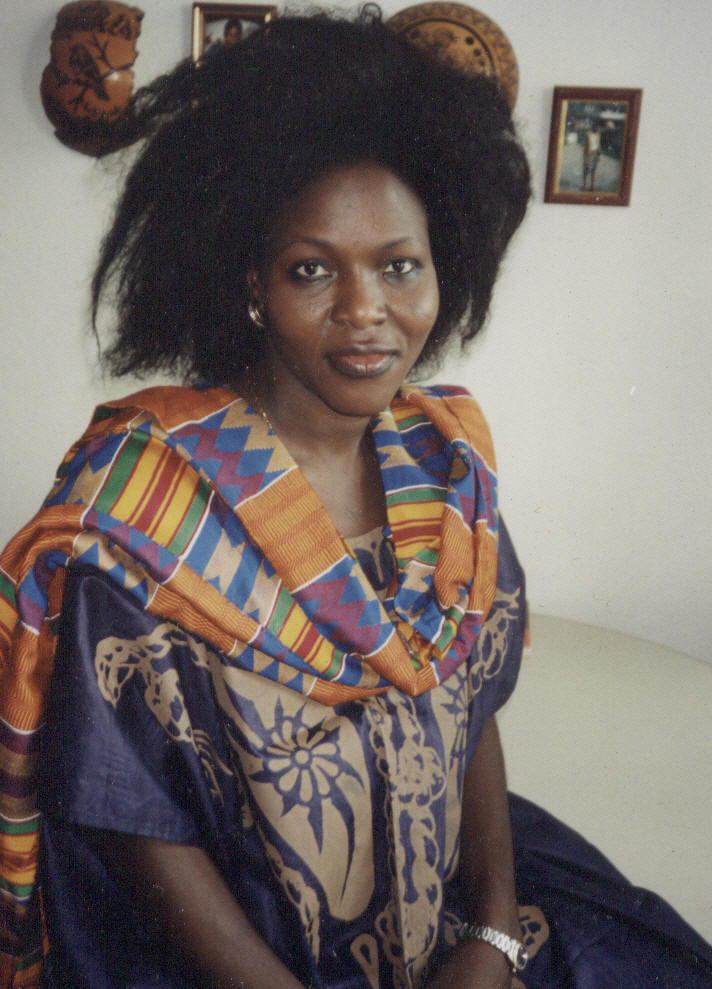

Interview with Pauline Akankyalabey (02.05.2003)
University Life in Ghana and Germany
BULUK: Please, would you tell us something about your own education before you went to Legon University?
P: I was born in Wiaga-Yisobsa. My father, the late John Baptist Akankyalabey, had moved from Wiaga Farensa to the Catholic Mission area where he had settled, married my mother Margaret Apok from Kadema and was working as one of the first catechists of the mission. I attended Azenab Girls Primary, St Martin's Middle and proceeded on to Zuarungu / Bolgatanga Secondary or “Big BOSS”. After my Sixth Form Studies I went to the University of Ghana, Legon where I studied History and English.
B: If you compare the African University with the German one, would you say that there are some differences between the universities, differences that struck you when you came to Germany?
P: Of course, there are a lot of differences. Not so much in the sense of the material or curriculum that is available, which in fact is often so much that it tends to confuse one at the beginning. My problem was the way this was presented and how this was to be absorbed by the student. Having had barely one and a half years of German, I found it initially very difficult following lectures, interacting with German students or even consulting the professors and university administration staff the way I wanted. Age differences, cultural background and financial constraints impedes the full integration of African students into the German university system.
B: What was your relation to the professors and lecturers here in comparison with the situation in Legon?
P: Here again there were some differences. In Legon my lecturers were mostly always available. Many of them even had time once in a while after a tutorial or discussion to visit a bar with their students for a drink. One didn't have to write his or her name on a list and wait an hour or two outside the professor's office for him. It could be that things have changed since then, but in my view this kind of relationship between students and lecturers made studies easier and university life more interesting and less demanding in Ghana than I found it here in Germany.
B: What about the demands and standards of learning? Apart from understanding the new language, was it more difficult in Ghana or in Germany to study history?
P: It is difficult to say considering the fact that in Ghana I was studying for a Bachelor of Arts degree whereas here I am trying to acquire a Master's. The main problem as I said earlier was the language barrier. I guess another thing to realise is that Ghanaians took on the British education system which is somewhat different from the German system. Here Students work much more independently and have the possibility to do more research because of the vast amount of books and resources available. In Ghana and many other African countries students have to depend a lot on their professors because of the limited amount of material available.